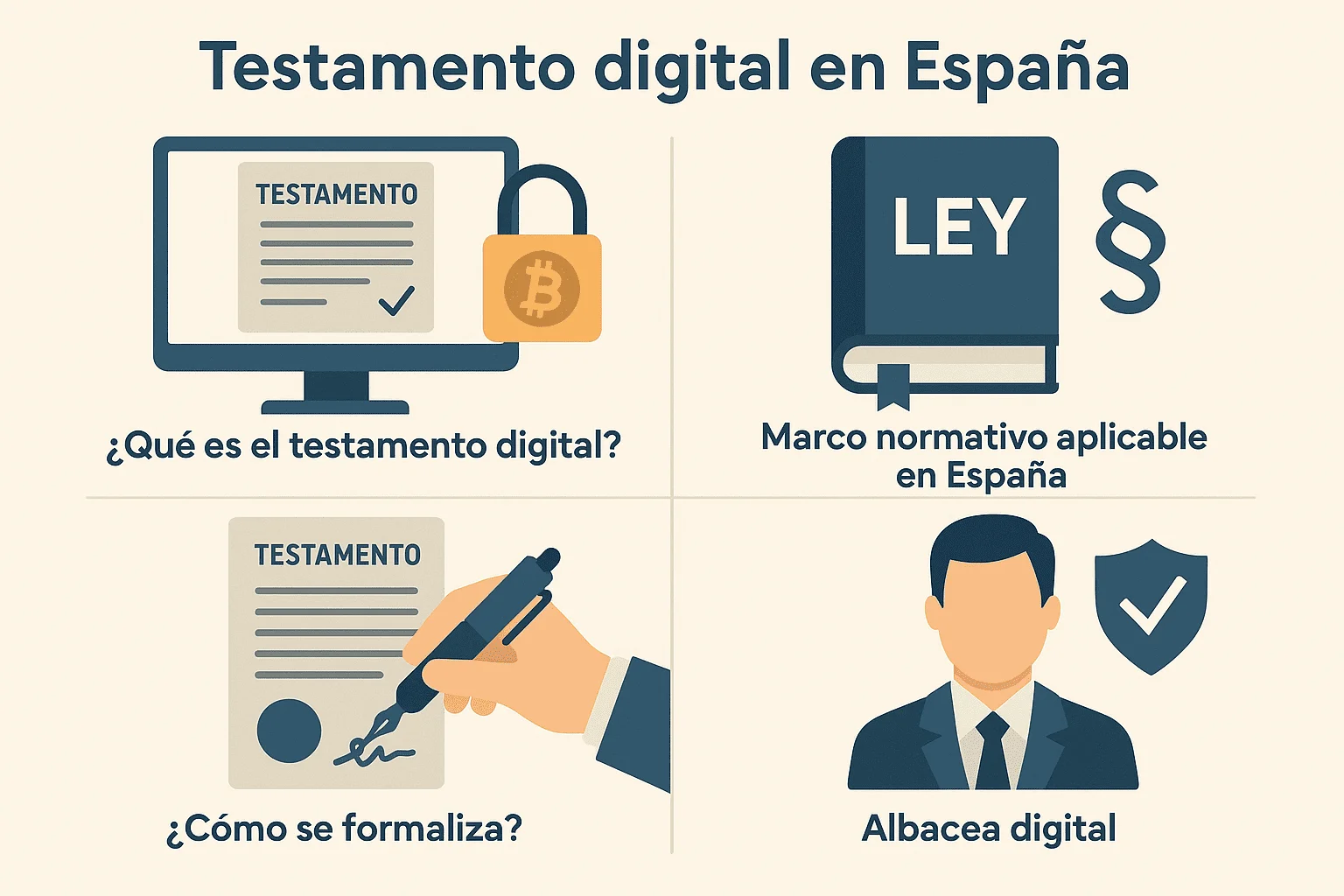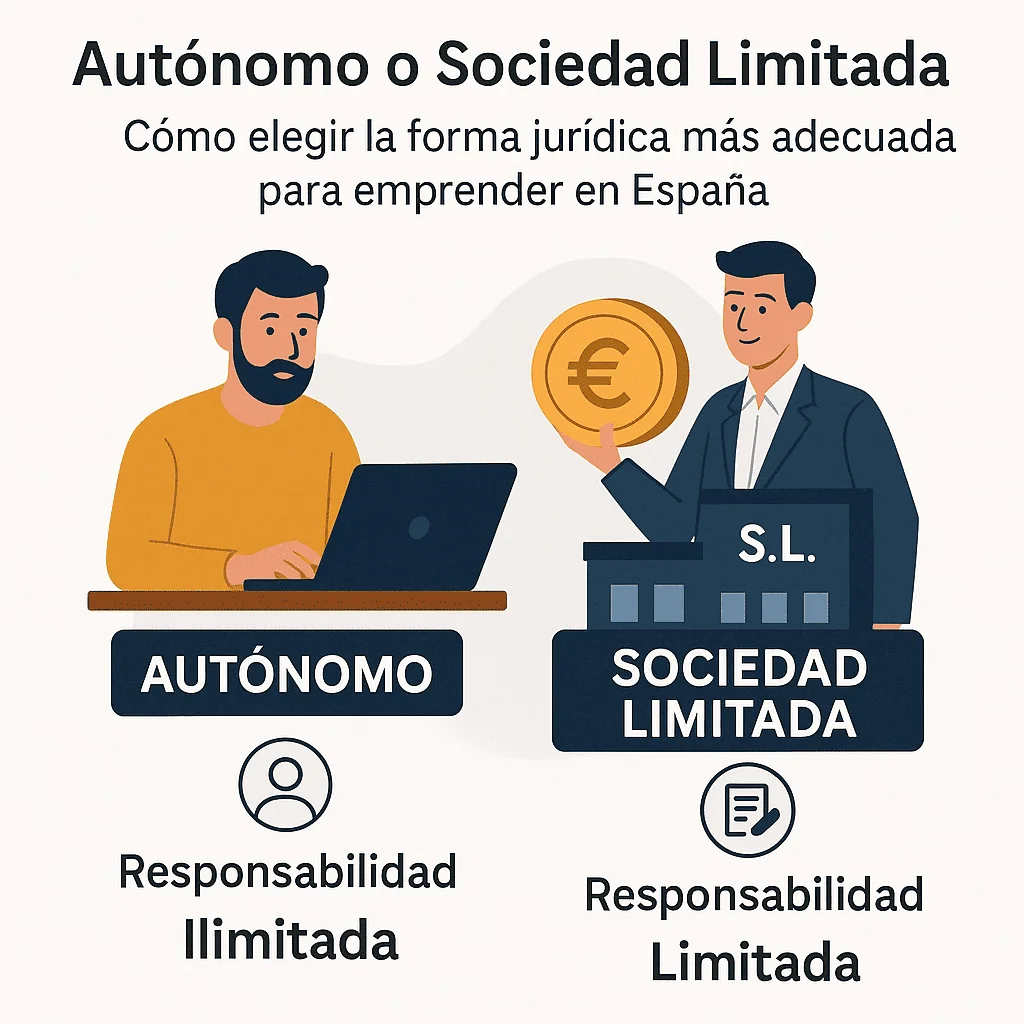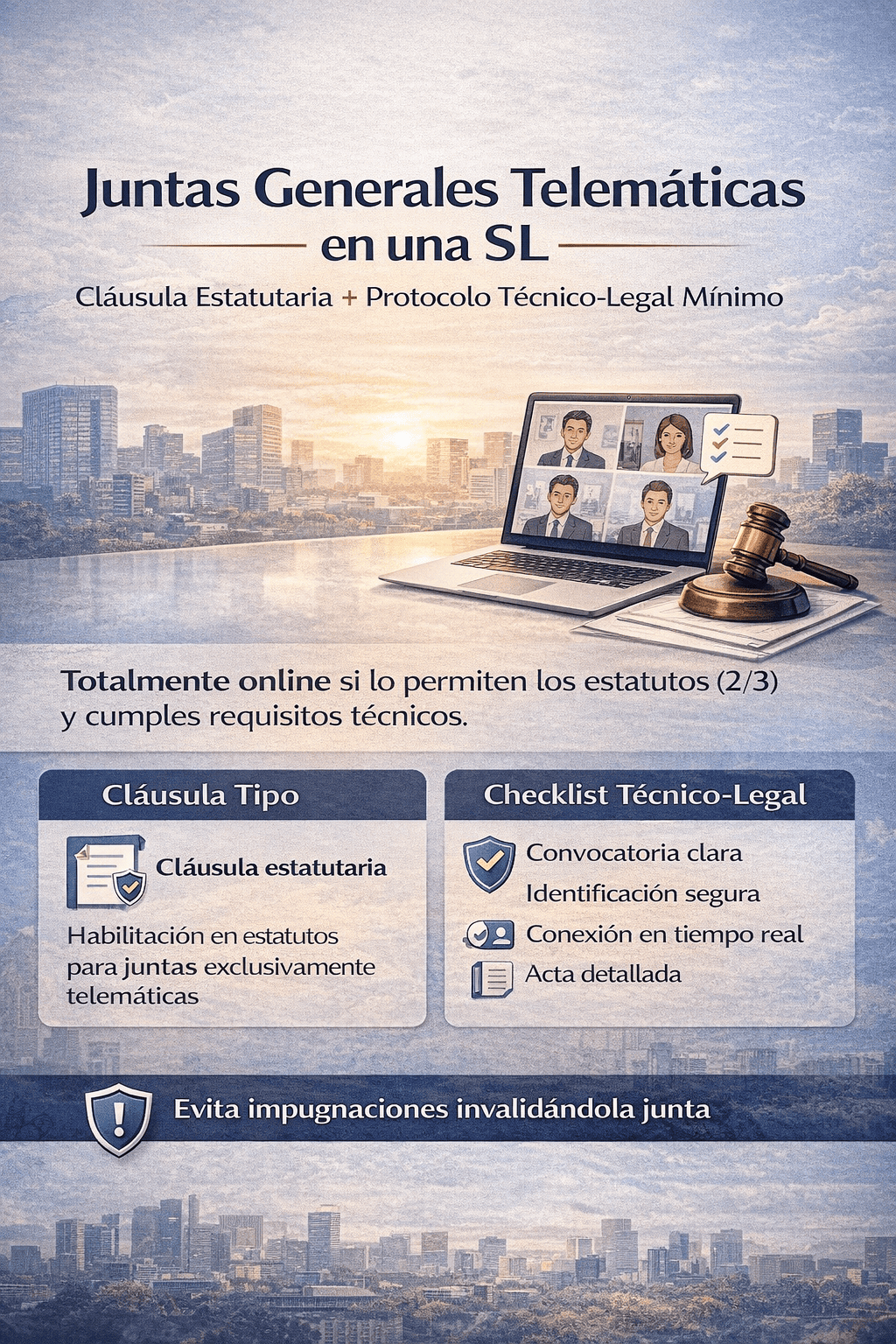Digital Will in Spain: Regulation, Content, and How to Formalize It
What is a digital will and what does it include?
A digital will is the instrument through which a person disposes of their digital assets and rights after their death, ensuring their control and destination according to their wishes. In a digitalized environment, assets are no longer limited to tangible property — they also include intangible ones such as social media profiles, email accounts, cloud storage files, digital licenses, subscriptions, or crypto-asset wallets.
Managing these assets presents unique challenges, as their existence and control often depend on service providers whose contractual terms may terminate the user’s rights upon death. Hence the importance of setting out clear and legally valid instructions.
Applicable legal framework in Spain
In Spain, the digital will does not yet have a unified or specific regulation, but it can be organized by combining general inheritance law with sectoral rules and data protection regulations.
Organic Law 3/2018 on the Protection of Personal Data and Guarantee of Digital Rights (LOPDGDD)
This law expressly recognizes the right to a digital will:
- Article 3 LOPDGDD: regulates the processing of deceased persons’ data, allowing relatives or connected persons to request access, rectification, or erasure of personal data, unless the deceased expressly prohibited it during their lifetime.
- Article 96 LOPDGDD: establishes the right to request access to and management of the deceased’s content and accounts from digital service providers. It also allows the deceased to designate a person to exercise this right — a digital executor.
Civil law
The Spanish Civil Code, in Articles 662 and following, regulates testamentary dispositions and the forms of wills, which are also applicable to digital content.
Articles 706 and following regulate the closed will, which offers greater privacy for handling sensitive information such as passwords or private keys to digital assets.
Catalan regional law
Law 10/2017, on digital wills and amendments to the Civil Code of Catalonia, already introduced the possibility of expressing digital dispositions and appointing a representative to execute them in Article 6.
What can a digital will include?
Some common examples:
- Email accounts
- Social media profiles
- Cloud storage files (Drive, Dropbox, iCloud…)
- Software licenses or digital products
- Cryptocurrency wallets
- Access to subscriptions (streaming, video games, media…)
In many cases, these services are subject to contracts that terminate upon the owner’s death, so it is advisable to leave clear instructions and provide the necessary access for recovery or cancellation.
How to formalize a digital will in Spain
1. Inventory of digital assets
All of the deceased’s digital assets must be identified: accounts, subscriptions, files, e-wallets, etc., including passwords and access keys if their transmission is to be ensured.
2. Instructions on the destination of each asset
The testator may order preservation, deletion, transfer to third parties, or destruction of access (for example, deleting a wallet’s private keys). In some cases, the terms of existing service contracts must be taken into account.
3. Appointment of a digital executor
It is advisable to appoint a trusted person responsible for carryin



